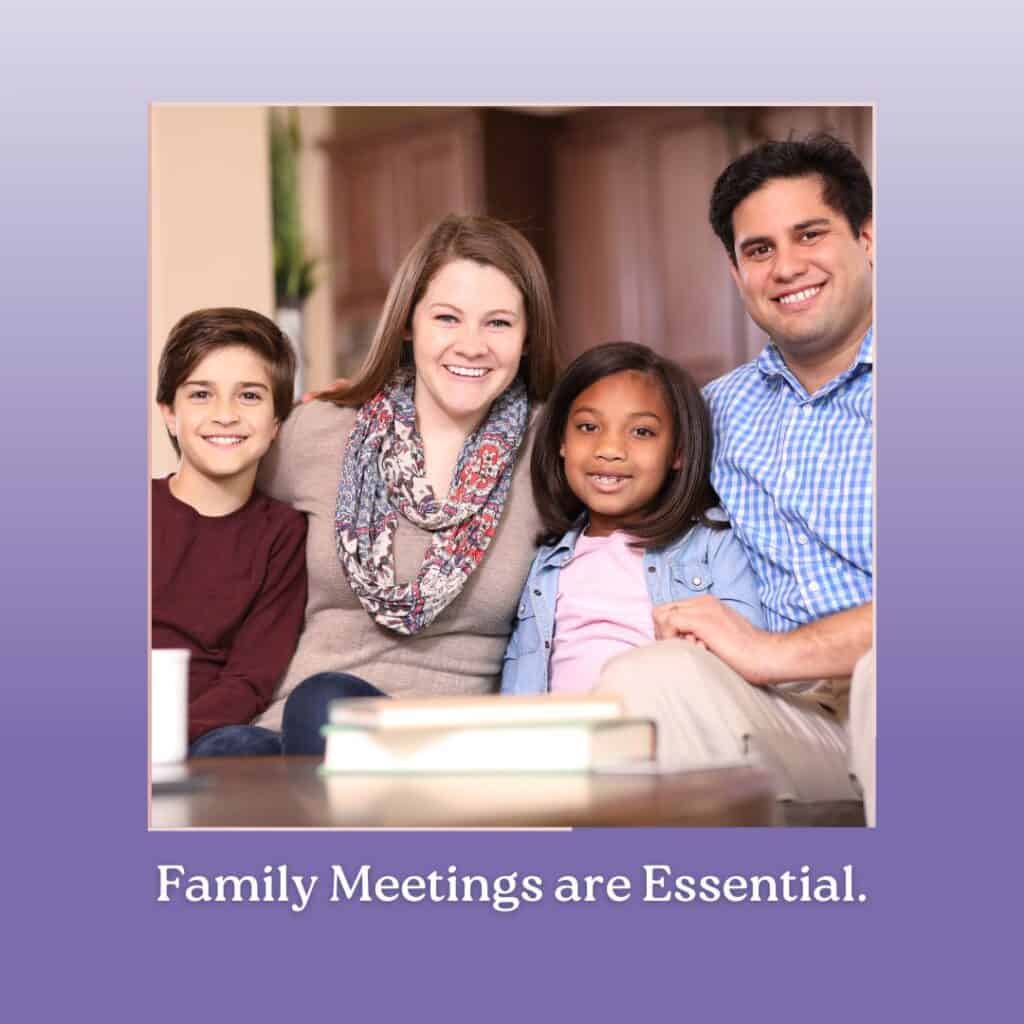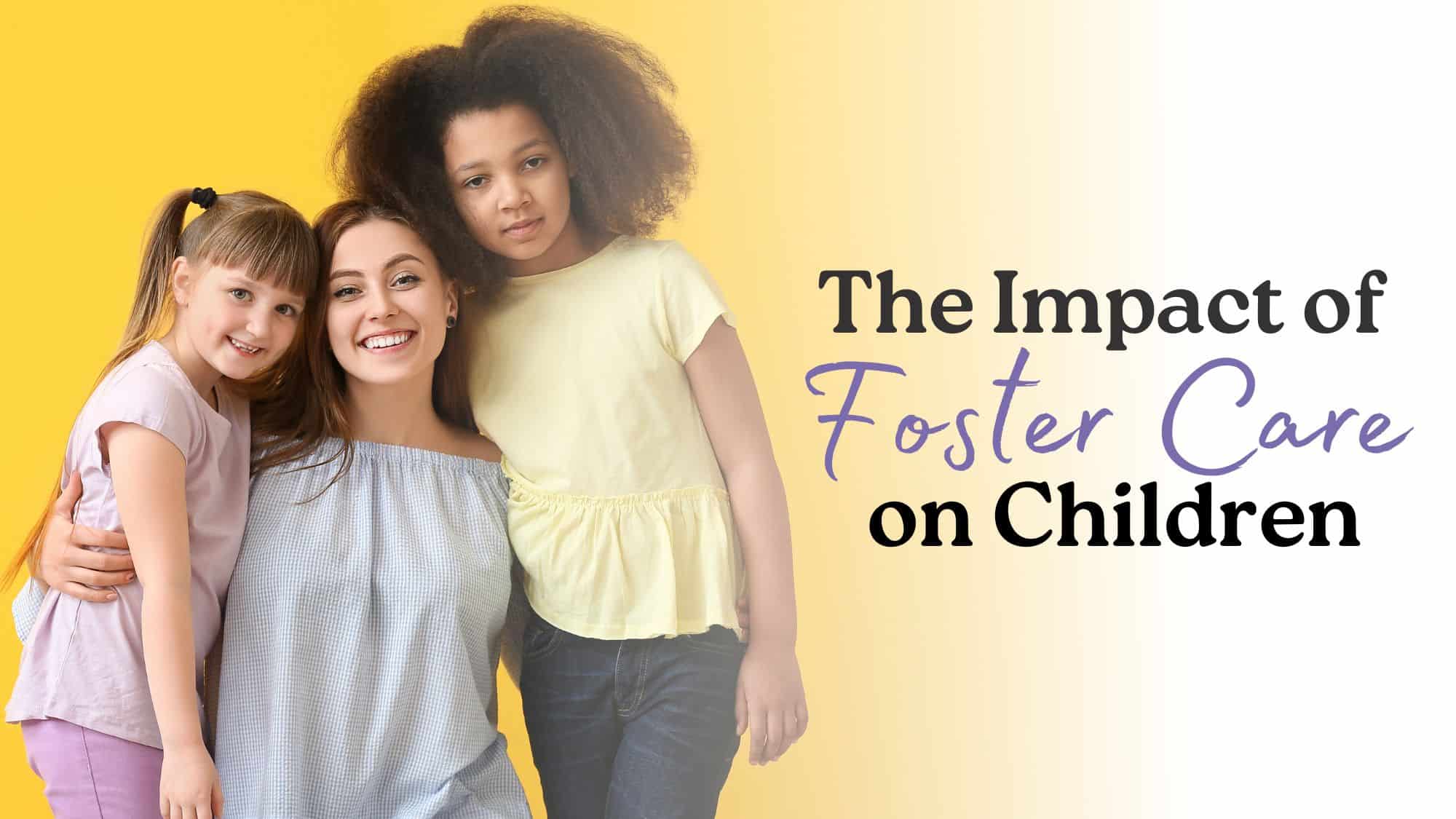It’s easy for parents to overlook the impact of foster care on children when considering bringing a foster child into their home. The following stories paint the picture well.
It seemed to Camie that she had told her daughter, ten-year-old Alise, for the tenth time, “Share your toys with Susie,” their new foster daughter, age eight. “You have so much, and she came to us with nothing.”
Jonathan was frustrated. He expected their 12-year-old son, Micah, to wholeheartedly welcome their new foster son, Malachi, age nine, into his world. It wasn’t working out as Jonathan had hoped. Micah spent more time than he ever had in his room with the door shut. “I need my space,” he blurted out to his dad.
Rick and Kristy, parents of three biological kids, just knew they would be so happy by adding additional kids to the family. But that wasn’t what happened. With the two new little ones clinging to the biological kids all the time and crying, all three of their biological kids began asking, “How long are they going to be here? Can you send them back?”
When these families decided to become foster parents, their biological children agreed and thought it would be fun. These new foster parents believed adjusting to having more children in the home would be relatively easy for their biological children. After all, they all said, “Go for it” when asked about it. However, none of these families had yet to experience the impact foster care would have on their children already in their homes.

One key topic for preparation for foster or adoption, when other children live in the home, is understanding the issues that may arise and having strategies in place will help keep balance and harmony as life changes unpredictably for everyone. Let’s discuss five concerns and strategies to minimize the impact of foster care on your biological or permanent children.
Four Concerns, Four Strategies
Concern One: The Biological or Permanent Child Is Traumatized by the Foster Child’s Reenactment of His Abuse Story in Play.
Jackie quietly raised her hand at a workshop, tears streaming down her cheek. “I didn’t know to think about this. I walked into my 5-year-old son’s bedroom, and our 3-year-old foster son was slugging his teddy bear. “You’re stupid. I hate you. I hate you!” My son sat wide-eyed with a look of terror in his eyes. This issue, for this family, came out of nowhere. No one mentioned this could happen during their preservice training.
Strategy
- Supervise all children as any foster child adjusts to a new home.
- Playing in areas where adults can have an eye on things should be the rule of the house, instead of playing in a bedroom.
- Doors should always be open if two children are in the room.
- Always debrief any heightened event, such as the one above, with both children separately. Don’t wait until the next day. A debriefing should happen as soon as possible and repeat the next day to check how the children feel.
Concern Two: Biological or Permanent Children Are Troubled by the Grief, Sadness, and Anger They See Their Parents Experiencing When the Family Struggles.
Micah walked into the kitchen. His father, Jonathan, and Malachi were engaged in a confrontation Micah had never seen. “You are not my real dad, and you cannot tell me what to do.” Jonathan felt the anger rise inside, and Micah saw it, too. Micah’s first thought was to defend his dad, but he kept quiet and walked out of the kitchen and back into his bedroom. Jonathan knew to expect this and took a deep breath to calm himself. However, no one had discussed the possibility with Micah and the meaning behind the behavior. He was left unprepared.
Strategy
- Debrief the biological or permanent kids as close to the incident as possible. Talk to them about what they are thinking and feeling.
- Encourage them to be honest about how they are feeling.
- Assure them that although it might look like an out-of-control sibling is hurting their parents, through word or action, they are safe. (If there is physical aggression, an immediate intervention with a professional is needed.
Concern Three: Children May Feel Invisible to Their Parents After a Foster or Adopted Child Arrives.

Alise threw the doll to Susie and stormed off. Sobbing, she cried, “You always have time for her, but you never have time for me anymore.” Alise used her words and behavior to express what she felt: invisible.
The many doctors and counseling appointments, family visits, and other unexpected meetings for Susie swallowed up Camie’s time for Alise. Later that evening, Camie sat down and counted the hours Alise had spent sitting in offices with her, waiting for Susie. The number jarred her heart. Alise never complained about it until it built up.
Strategy
- Keep attuned to your child’s needs.
- Communicate about which things are good with having a foster child and what challenges they are facing. If you cannot remember a recent time that you have had this conversation with your children, it is time to bring it up.
- All children need undivided attention from their parents. Plan special time with each child. In a large family, that isn’t easy. One large foster family sets Mondays aside for time with each boy. Tuesday is the day for the girls. That time may be as simple as working on a puzzle, reading a book, or working on a hobby.
- Ensure that the biological or permanent children’s activities are not restricted due to the new responsibilities that come with the foster child.
Concern Four: Biological or Permanent Kids May Believe Their Opinions Don’t Matter, or They May Trivialize Their Own Struggles or Needs.
It was family meeting night. All the kids had a feeling why Dad had called it. Mark and Sandra were the foster/adoptive parents of six kids, and it was family meeting time whenever changes were about to happen.
“We have been asked to consider bringing two more foster children in the house,” Dad said. “I know the last experience we had brought many challenges to us all. I want to know what you all are feeling about this. We won’t move forward unless everyone is in agreement.”
Katie, age fourteen, quietly said, “Dad, could we take a break? I am just not ready to do this all over again. Just a little break, maybe until school is out in a few months.”
Sandra responded almost immediately because she and Mark knew their kids’ opinions mattered. “Thank you for being honest with us, Katie. We will have this conversation again in a few months.”
Strategy

- When planning to add additional youngsters to the family, even temporarily, family meetings are essential.
- Biological or permanent kids sometimes will minimize or trivialize how they feel so they won’t disappoint their parents. Encourage honest thoughts and feelings that can be processed as a family.
The parent’s job is to prepare and support the current household youngsters for what is ahead. We will further discuss the impact of foster care on children and more strategies for preparing your youngsters to bring a foster care child into your home in part two.




















